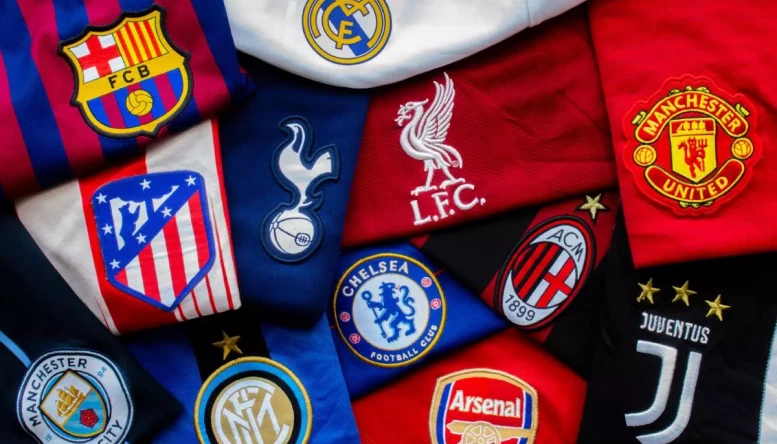European Super League back in play after judges rule against UEFA
Judges have ruled that UEFA's rules preventing the formation of a European Super League is in breach of EU law.
 European Super League.
European Super League.Judges have ruled that UEFA's rules preventing the formation of a European Super League is in breach of EU law.
The Grand Chamber of the European Court of Justice had been asked to decide whether UEFA and FIFA acted against competition law by blocking the formation of the European Super League in 2021 and then seeking to sanction the clubs involved.
The court has ruled that UEFA and FIFA rules granting prior approval for new competitions are contrary to EU law.
A release issued by the court said such rules were "contrary to competition law and the freedom to provide services".
The court release added: "There is no framework for the FIFA and UEFA rules ensuring that they are transparent, objective, non-discriminatory and proportionate.
"Similarly, the rules giving FIFA and UEFA exclusive control over the commercial exploitation of the rights related to those competitions are such as to restrict competition, given their importance for the media, consumers and television viewers in the European Union."
Twelve clubs - including the Premier League's 'Big Six' - announced the formation of the original European Super League in April 2021 but the plan quickly collapsed amid fan protests, pressure from UEFA and FIFA and even opposition from the British Government.
But now the ECJ appears to have given the green light to any such competition being relaunched in future.
"The court observes that the organisation of interclub football competitions and the exploitation of the media rights are, quite evidently, economic activities," the court release continued.
"They must therefore comply with the competition rules and respect the freedoms of movement, even though the economic pursuit of sport has certain specific characteristics, such as the existence of associations having certain regulatory and control powers and the power to impose sanctions.
"The court also observes that, in parallel with those powers, FIFA and UEFA themselves organise football competitions."
Bernd Reichart, the chief executive of Super League promoters, A22, said on X: "We have won the right to compete. The UEFA monopoly is over. Football is free. Clubs are now free from the threat of sanction and free to determine their own futures."
Reichart also pledged "free viewing" of Super League matches to fans, though it was not immediately clear whether this meant for those watching in stadiums or on television or other platforms.
He said revenues and solidarity spending were "guaranteed". A22 is set to hold a live streamed event in Madrid at 11am UK time.
The court held that where an undertaking, such as UEFA, holds a dominant position and has the power to determine the conditions in which potentially competing undertakings such as A22 may access the market, that power must be subject to criteria which are suitable for ensuring that they are transparent, objective, non-discriminatory and proportionate.
It found UEFA and FIFA's powers were not subject to any such criteria and that those organisations were therefore "abusing a dominant position".
UEFA issued new authorisation rules for promoters wishing to launch new competitions in June 2022.
However, they appear on the face of them to preclude the creation of a rival competition because they contain cumulative conditions designed to prevent the adverse functioning of their existing events such as the Champions League.
The court found UEFA's rules on approval, control and sanctions must be held to be "unjustified restrictions on the freedom to provide services".
The court said this did not mean the specific Super League project proposed in 2021 would necessarily be approved. It was asked for a ruling on UEFA and FIFA's rules, but by finding them contrary to EU law, the case will now go back to the Madrid commercial court for a decision. In any case, those behind the Super League have now redesigned their proposal and therefore are not expected to be seeking approval for the format put forward in 2021.
In parallel, the court observed that FIFA and UEFA rules relating to the exploitation of media rights are such as to be "harmful (to) European football clubs, all companies operating in media markets and, ultimately, consumers and television viewers, by preventing them from enjoying new and potentially innovative or interesting competitions".
READ MORE: Santiago Solari elevates role at Real Madrid to director of football
Editor's Picks
- 01
Brendon McCullum: England ready to be 'really brave' in team selection for India series
- 02
Diogo Jota inspires Liverpool surge as injuries fail to dampen Premier League lead
- 03
Cameron Norrie ready to go toe-to-toe with the big boys after stellar Australian Open run
- 04
Maxwel Cornet confident of scoring run after opening West Ham account